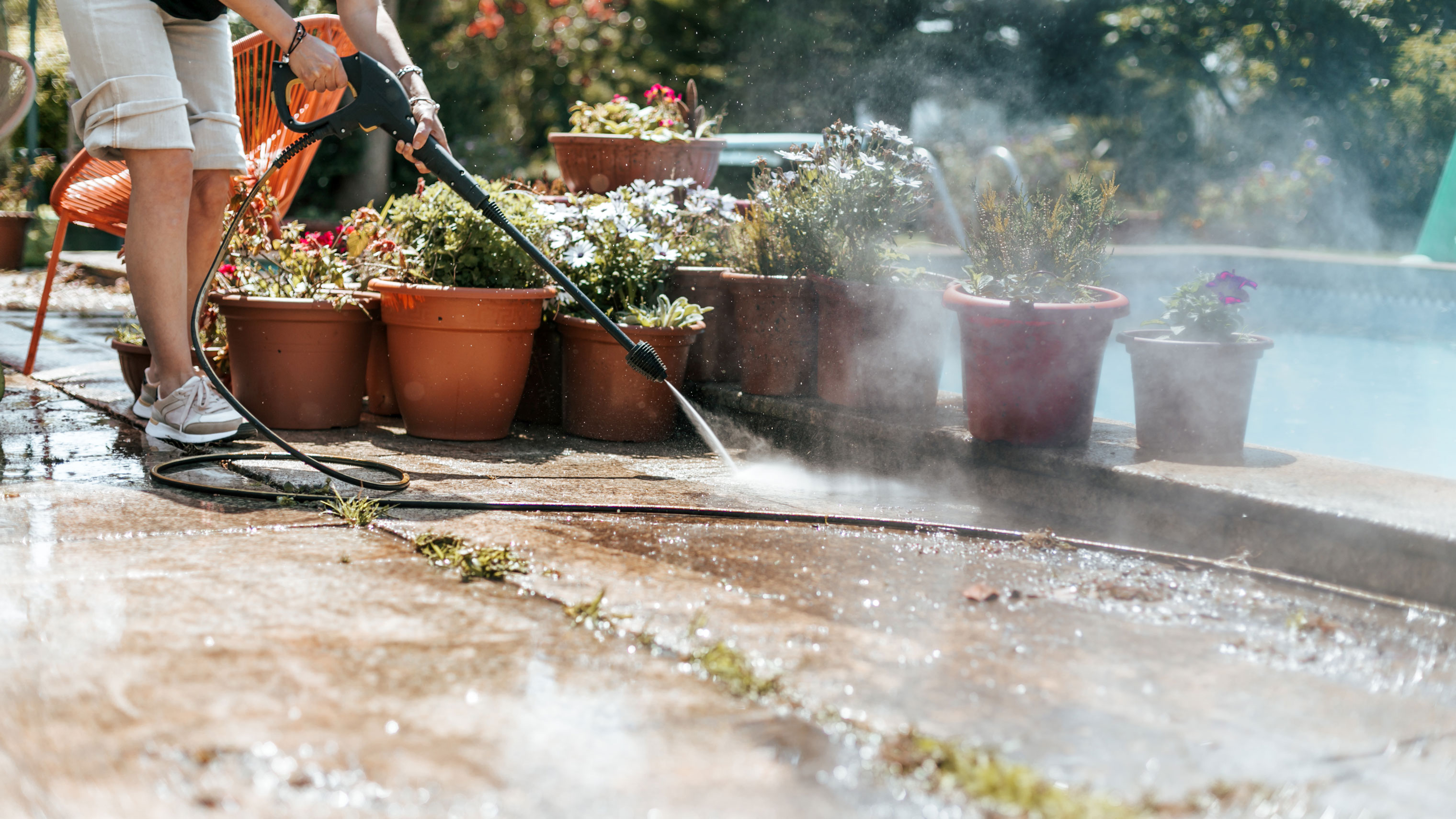
After a long winter and an unsettled spring, your home and garden are probably looking a little worse for wear, but before you reach for the pressure washer, stop. Many people think that pressure washing everything, especially outside of the home – including siding, cars, and brickwork – will blast dirt and grime away without issue, but nothing could be farther from the truth.
While pressure washers are excellent at certain jobs, hello beautifully clean backyard pavers, there are certain household tasks that you should never clean with a pressure washer. If you do, you could end up damaging surfaces, and cause more harm than good. Worse case, you could be faced with hefty bills trying to fix any damage caused, or even seriously injure yourself in the process.
Typically, a pressure washer like the Kärcher K1700, available at Amazon, uses a highly pressurized water jet and can be used for blasting away dirt, moss, lichens, algae, and even chewing gum residue from hard surfaces. These are particularly ideal for getting patio flooring, decks, driveways, and stone tiles spotless, especially if you want to give your backyard a makeover this season.
7 things you should never clean with a pressure washer
Before you begin, take a look at these seven things you should leave well alone, as well as the best cleaning tips to follow instead.
1. Windows
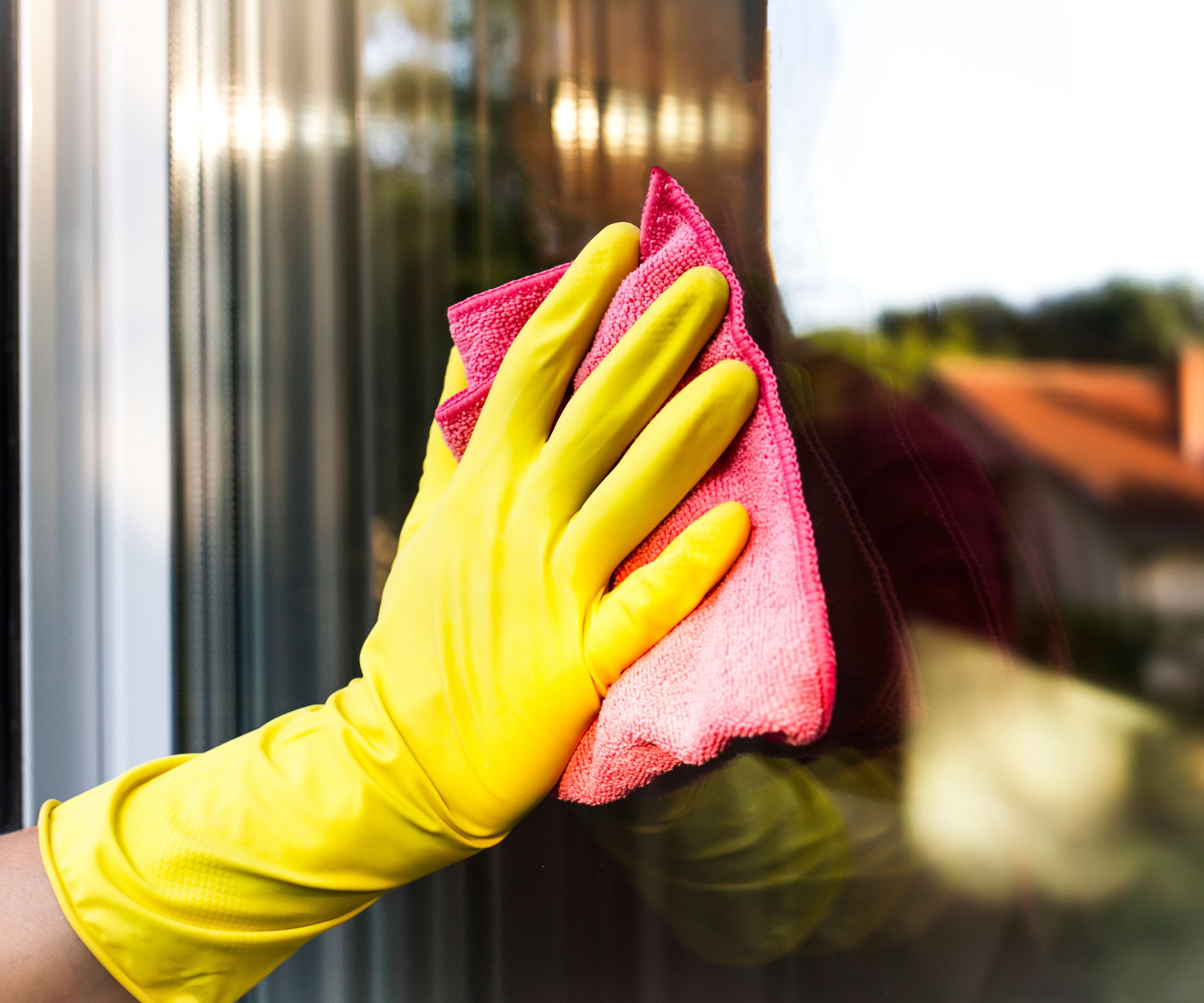
Cleaning windows has to be one of the most satisfying tasks, with a quick clean and a gentle buff, you can say hello to uplifting sunlight as it shines through the spotless glass, but think twice before you reach for your pressure washer.
The intense, high-pressure jet spray is often too powerful for fragile panes of glass, and could break, crack or shatter them.
You will also want to take extra precautions with double-paned windows, as pressurized water can break the seal between layers. Additionally, a broken seal could mean you and your home risk exposure to mold, dampness, and mildew. A full repair could be a costly endeavor.
The best way to clean exterior windows is with either a homemade vinegar-based solution – or dish soap and water – and a squeegee. This highly-rated microfiber squeegee from Amazon will do the hard work for you. However, if you are cleaning interior windows, try these best-selling microfiber cloths from Amazon instead.
Then, you can simply use a backyard hose with a nozzle attachment to rinse away any grime or debris.
2. Bikes and cars
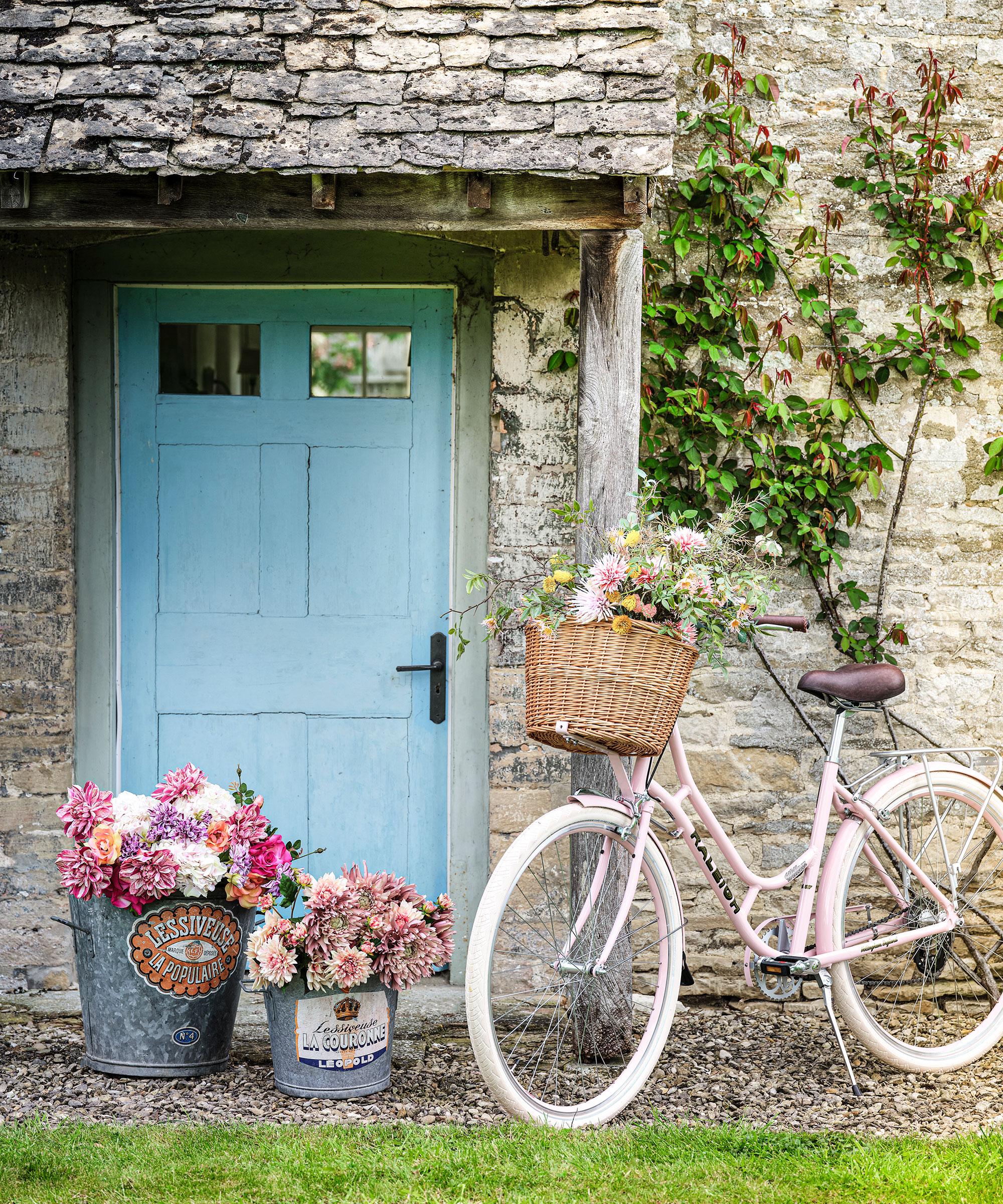
If you want your vehicle to look sparkling and brand-new, then you may be wondering if your pressure washer could do the trick, but be warned, you could be doing costly or irreparable damage to your ride.
While some pressure washers are marketed as suitable for bikes and cars, and this is true if the pressure is low enough, however, it is ill-advised to use one altogether unless you know what you are doing, or can guarantee that it won't make matters worse. Used incorrectly, the power of the spray can strip paintwork, leaving unsightly dents or chips. In addition, any long-term damage can cause corrosion and rust to bodywork, or worse, damage to the vehicle's engine or gears.
The best way to clean a bike or car is by hand washing with a soft sponge, this microfiber car wash pad from Amazon is a smart purchase, and you can even use it for bicycles, motorcycles, and scooters as well.
If you do need to use a pressure washer, however, keep about six inches away from paintwork, and around a foot away from any already damaged paintwork or trim.
3. Render planters
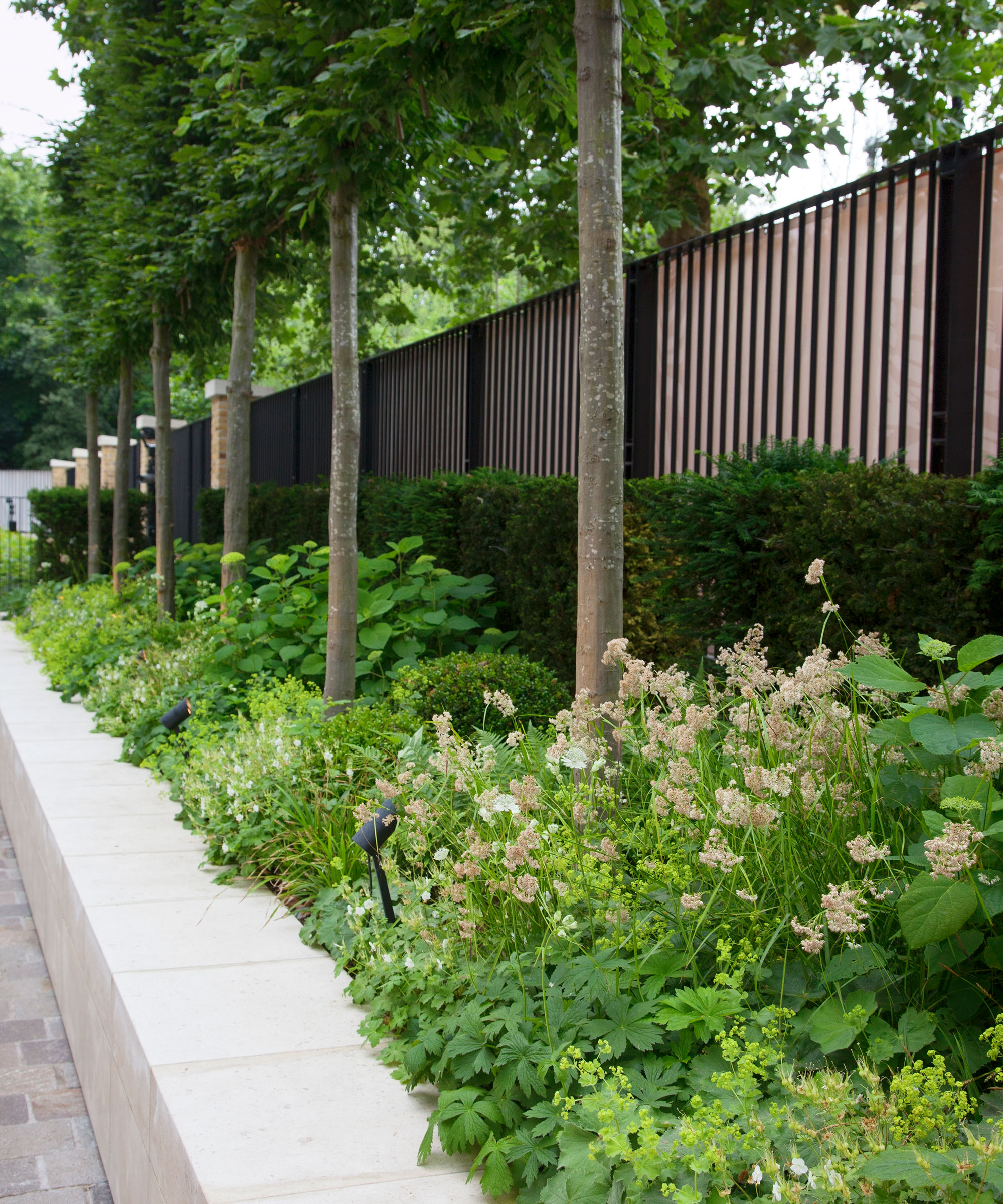
Raised garden beds and rendered planters can be permanent yet beautiful garden ideas for perennial plants, fruit, and vegetables to settle in and mature, however, they also need regular maintenance to keep them looking spotless.
While your render may seem hardy and resistant, the high power of a pressure washer could penetrate behind the skin and effectively 'blow it' away from the wall.
4. Wooden garden furniture
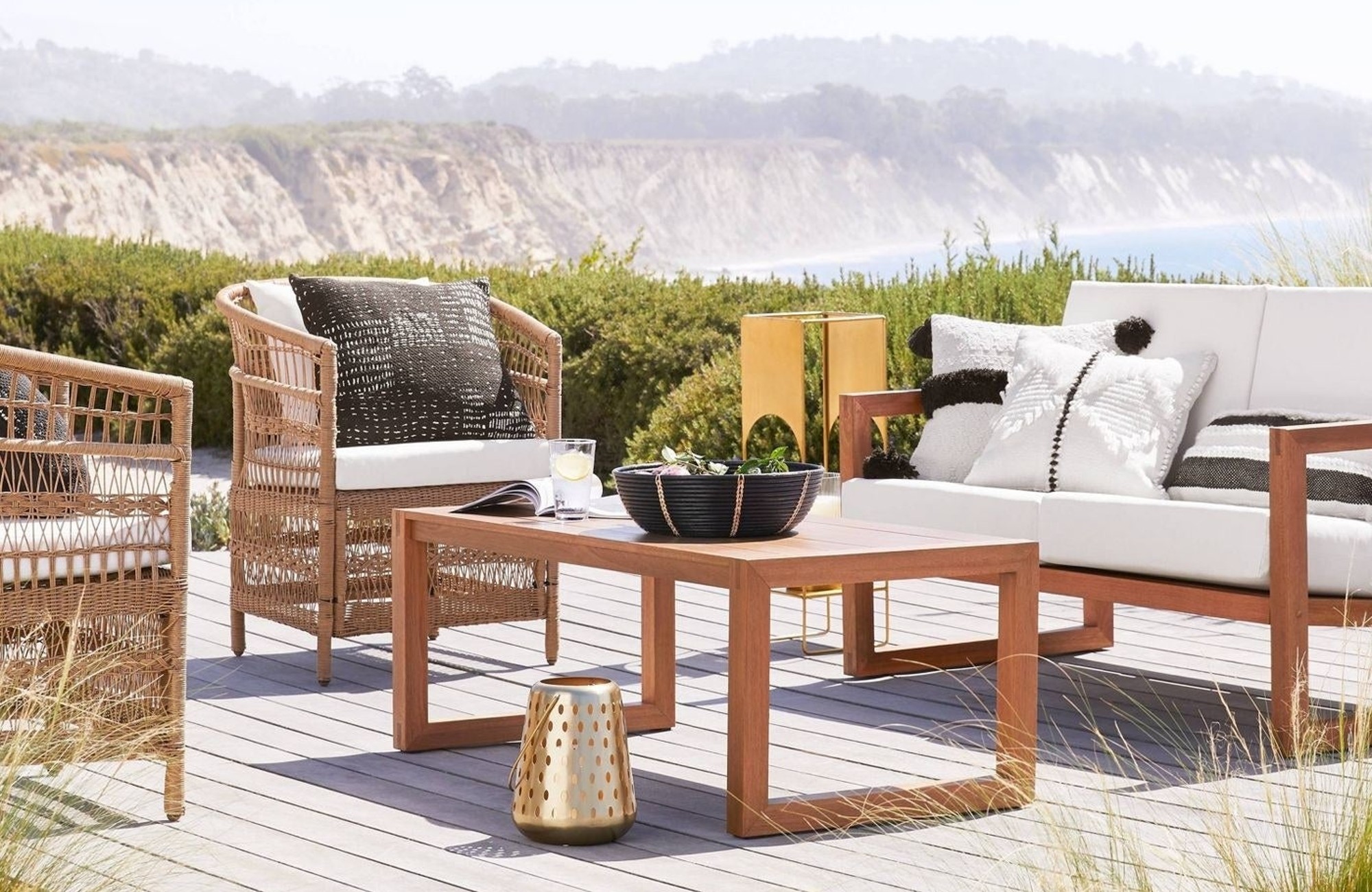
Understandably, we all want to keep our wooden outdoor furniture looking its best during spring and summer, so it is no surprise that we are constantly searching for the best ways to clean outdoor furniture.
However, using a pressure washer could cause the wood to split, chip, and splinter. Also, the excessive power could strip any protective waterproof sealant you may have previously applied to protect your furniture from the elements. This could make it more susceptible to water damage, warping, or even the dreaded mold.
'Wood can be one of the trickiest materials to clean when it comes to outdoor furniture,' warns Mallory Micetich, Home Expert of Angi. 'Never use boiling water to clean your wooden furniture – it can permanently discolor the wood. If you need to scrub your wooden furniture to remove dirt, be as gentle as possible and scrub with the grain pattern to preserve the appearance of the wood.'
There are specialist cleaning products available for certain types of wood, such as teak, which will restore the color, too. Star Brite's Teak Care Kit, available at Walmart, also helps to protect your furniture from future stains and is well-rated by customers.
5. Light fixtures
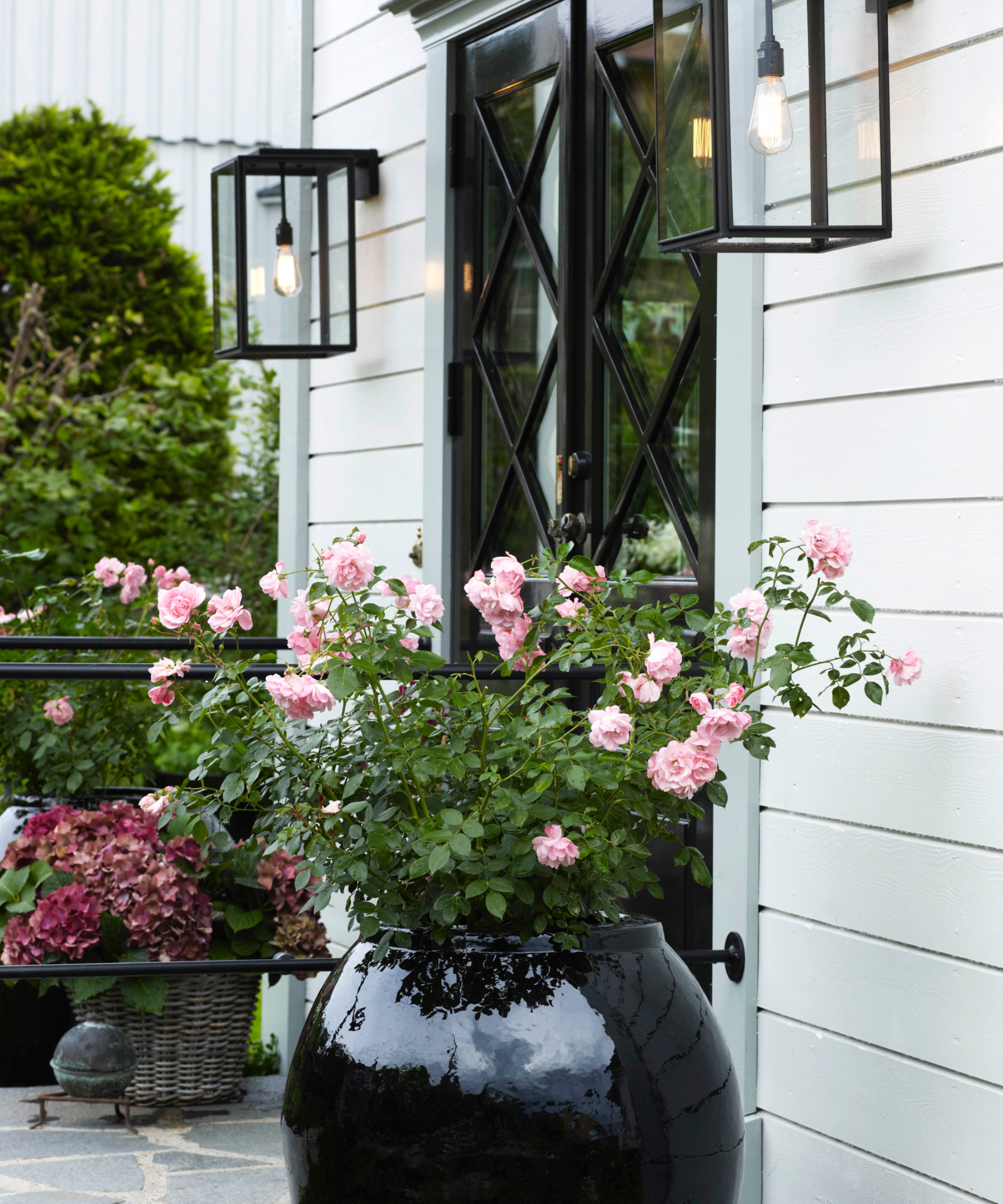
If you have backyard lighting or front porch lighting, then chances are you know how dirty these fixtures can get over time. After all, they face the harsh elements all year round. But while they're designed to withstand extreme weather conditions, the power of a pressure washer could be too much to handle. Plus, you don’t want any water to seep into the internal electrical elements.
The best way to clean outdoor lights is to carefully remove the lightbulb from the fixture and wipe it with a damp microfiber cloth, like these basic microfiber cloths from Amazon, which come in a pack of 24. Then, take an old paintbrush to brush away the debris, dead bugs, or cobwebs outside the fixture, before cleaning with a damp cloth or soft sponge with soapy water. This will prevent any risk of damage, and keep your light fixtures clean and ready for alfresco entertaining.
6. Asphalt shingle roofs
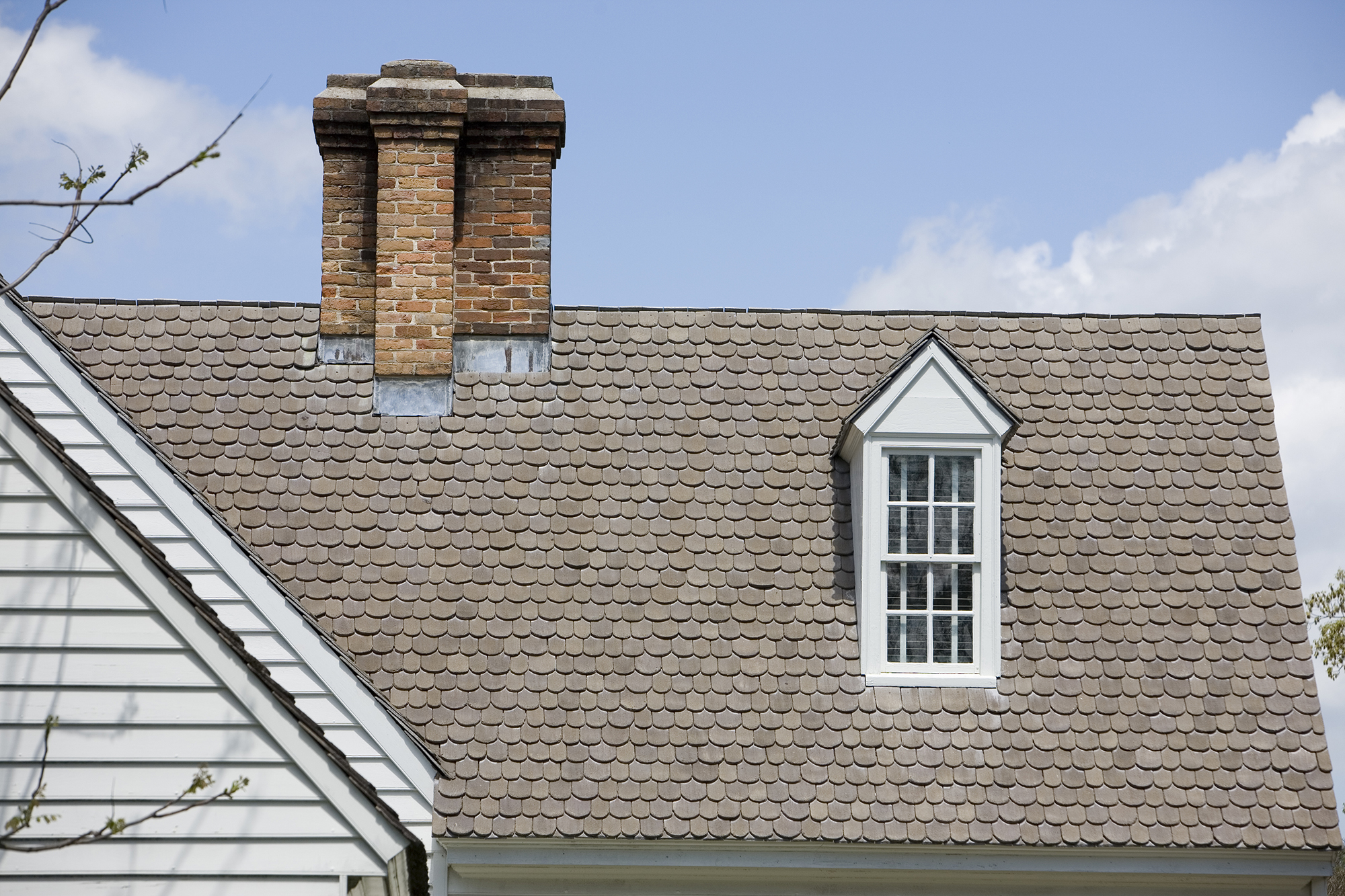
The roof tends to be the last place we think to clean, but a build-up of moss and dirt means we should be cleaning the roof more often than we may already do. More than just unsightly, moss can cause damage to tiled roofs in particular, and inevitably clumps of it get pushed by rainfall down into guttering, blocking and damaging drainage further.
However, if you have asphalt shingle tiles on your roof, you should never clean them using a pressure washer. While it may seem like the quickest and easiest way to remove dirt and debris, the risk of damaging the tile is far too great. The high-power jets can cause the tiles to come loose, especially on older roofs. This will also make them more susceptible to leaks which in turn can cause mold and more serious structural damage.
If your roof is in dire need of cleaning, we recommend calling in the specialists. An expert should take all the necessary safety precautions associated with roof cleaning. This is not a job for an amateur.
7. Pools

With summer on the horizon, knowing how to clean a pool is imperative. While you might be tempted to clear away any mildew or algae using a pressure washer, be warned that is not a good idea. Why, you ask? Using too much excessive pressure on surrounding cement can damage the plaster shell, causing leaks. If you have a vinyl liner, even a small amount of pressure can tear holes. A better and safer option is to keep the water clean using chemicals, this is also known as shocking a pool or using a robotic pool cleaner. This cordless robotic cleaner and vacuum, from Amazon, is five-star rated.
FAQs
What can I clean with a pressure washer?
Used properly, a good pressure washer can be very handy indeed. Before investing in a pressurewasher it's wise to think about what you really want to use it for, and just how powerful it needs to be. Simple machines come with a straightforward, non-adjustable lance. Spending more money will get you extra tools such as variable spray lances, fan-and-angled-jet nozzles, rotating brushes, detergent mixing bottles, and perhaps even a dedicated car cleaning kit.
Here are just a few of the things you can clean with a pressure washer:
- Concrete patio pavers and paths
- Driveways
- Garage flooring
- Garbage cans
- Deck (unstained)







